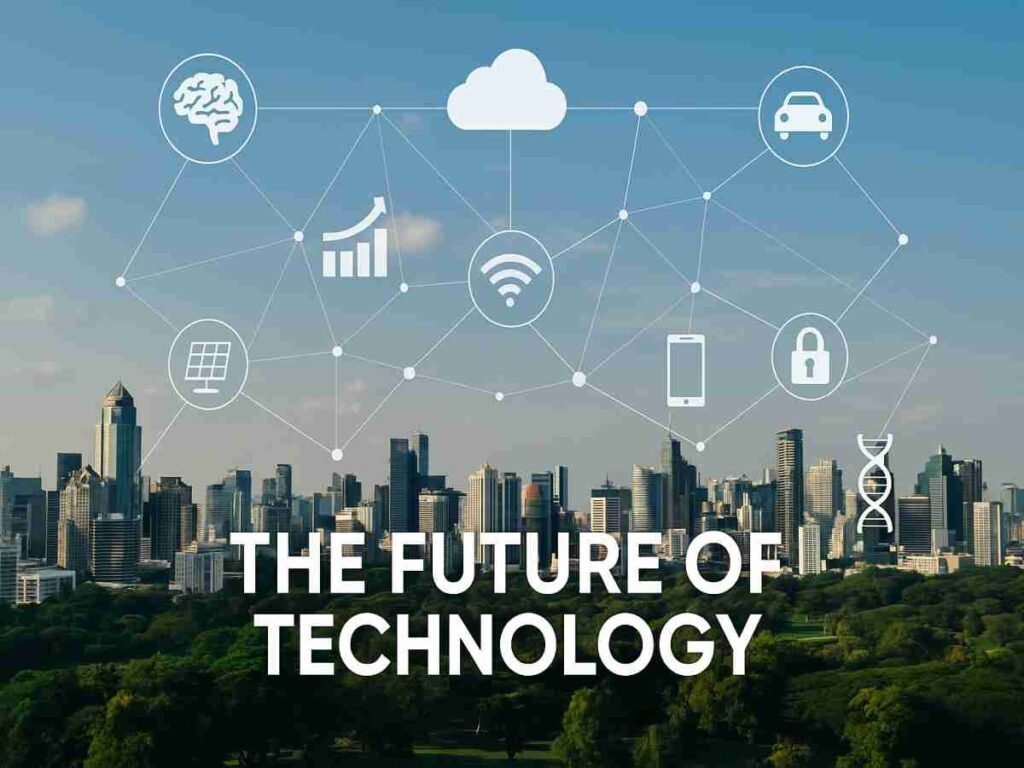The Future of Technology: Trends That Will Shape Our World
Technology is evolving at lightning speed, and the future of technology will continue to transform how we live, work, and connect with one another. From artificial intelligence to renewable energy, these innovations will define the next decade.
1. Artificial Intelligence (AI) Everywhere
AI is no longer just in labs, it powers chatbots, healthcare diagnostics, autonomous vehicles, and even creative tools. In the future of technology, AI will be central to problem-solving and productivity.
Example: ChatGPT (AI-driven assistant) helps businesses write emails, generate code, and improve customer support. In healthcare, AI tools like Google’s DeepMind and IBM Watson detect diseases earlier than human doctors.
Good: Saves time, automates routine work, improves accuracy.
Bad: Risk of job loss, bias in algorithms, privacy concerns.
2. Renewable and Green Tech
Climate change challenges are pushing innovation in green technology. Solar panels, wind turbines, and sustainable materials are paving the way for a cleaner planet.
Example: Tesla’s solar roofs and Powerwall batteries allow households to generate and store renewable energy. Countries like Denmark and Costa Rica already power most of their grids with clean energy.
Good: Reduces carbon footprint, long-term cost saving.
Bad: High initial investment, weather dependency.
3. Quantum Computing
Faster than today’s supercomputers, quantum computing will revolutionize finance, medicine, and cybersecurity by solving problems that were previously impossible.
Example: IBM and Google are racing to build quantum computers. In finance, JPMorgan is testing quantum computing to improve fraud detection and portfolio optimization.
Good: Solves problems classical computers can’t.
Bad: Extremely expensive, still experimental.
Quantum Machine Learning | Power of Data, at the intersection of new technologies
4. The Internet of Things (IoT)
From smart homes to smart cities, IoT is making life more connected. Devices will communicate seamlessly, improving efficiency in transportation, healthcare, and agriculture.
Example: Smart home devices like Alexa or Google Nest adjust lighting and temperature automatically. In agriculture, IoT soil sensors help farmers save water and improve crop yields.
Good: Convenience, efficiency, real-time data.
Bad: Security risks (hackable devices), privacy issues.
5. Biotechnology and Health Tech
Wearables, genetic research, and telemedicine are creating a healthcare revolution. The future of technology in medicine is personalized, predictive, and accessible.
Example: Apple Watch can monitor heart rate and detect irregularities. CRISPR gene-editing technology is being tested to cure genetic diseases like sickle cell anemia.
CRISPR is a modern gene-editing technology that allows scientists to cut and modify DNA precisely. It’s used in medicine, agriculture, and research, with potential to cure genetic diseases.
Good: Longer life expectancy, personalized healthcare.
Bad: Ethical concerns, high medical costs, privacy of genetic data.
Medical Genetics | The Key to Understand Chromosomes, DNA, Genes
Why the Future of Technology Matters
Understanding the future of technology helps individuals, businesses, and governments prepare for change. Those who adapt quickly will thrive, while those who resist may be left behind.
Those who adopt the future of technology—from AI to biotech—may gain an edge in productivity and sustainability. Businesses that fail to adapt risk falling behind competitors.
Conclusion
The future of technology is filled with promise and challenges. By embracing innovation responsibly, we can ensure progress benefits everyone.
Sources: PinterPandai, ODN Digital, Atlan
Eco friendly actions to adopt for responsible digital technology

